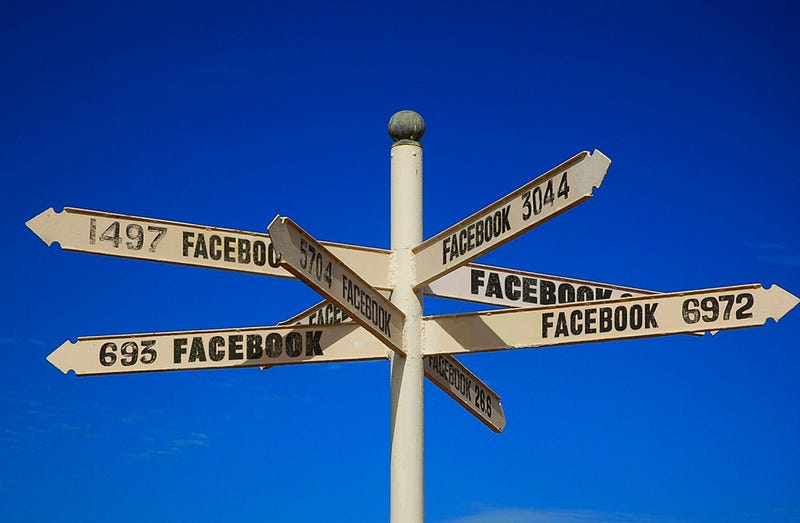Understanding the Open Graph Protocol — Chris Messina — Medium
Understanding the Open Graph Protocol
I attended Facebook’s F8 conference yesterday (missed the keynote IRL, but you can catch it online) and came away pondering the Open Graph Protocol.
In they keynote Zuck said (as Luke Shepard calls him):
Today the web exists mostly as a series of unstructured links between pages. This has been a powerful model, but it’s really just the start. The open graph puts people at the center of the web. It means that the web can become a set of personally and semantically meaningful connections between people and things.
While I agree that the web is transmogrifying from a web of documents to a web of people, I have deep misgivings about what the Open Graph Protocol — along with Facebook’s new Like button — means for the open web.
There are three elements of Facebook’s announcements that seem to conspire against the web:
- A new format
- Convenient to implement
- Facebook account required
First, to support the Open Graph Protocol, all you need to do is add some RDFa-formatted metatags to the HEAD of your HTML pages (as this example demonstrates, from IMDB):
Simple right? Indeed.
And from the looks of it, pretty innocuous. Structured data is good for the web, and I’d never argue to the contrary. I’m skeptical about calling this format “open” — because it smells more like openwashing from here, but I’m willing to give it the benefit of the doubt for now. (Similarly, XAuth still has to prove its openness cred, so I understand how these things can come together quickly behind closed doors and then adopt a more open footing over time.)
So, rather than using data that’s already on the web, everyone that wants to play Facebook’s game needs to go and retrofit their pages to include these new metadata types. While they’re busy with that (it should take a few minutes at most, really), won’t they also implement support for Facebook’s Like button? Isn’t that the motivation for supporting the Open Graph Protocol in the first place?
Why yes, yes it is.
And that’s the carrot to convince site publishers to support the Open Graph Protocol.
Here’s the rub though: those Like buttons only work for Facebook. I can’t just be signed in to any social web provider… it’s got to be Facebook. And on top of that, whenever I “like” something, I’m sending a signal back to Facebook that gets recorded on both my profile, and in my activity stream.
Ok, not a big deal, but think laterally: how about this? What if Larry and Sergey wanted to recreate PageRank today?
You know what I bet they wish they could have done? Forced anyone who wanted to add a page to the web to authenticate with them first. It sure would have kept out all those pesky spammers! Oh, and anyone that wanted to be part of the Google index, well they’d have to add additional metadata to their pages so that the content graph would be spic and span. Then add in the “like” button to track user engagement and then use that data to determine which pages and content to recommend to people based on their social connections (also stored on their server) and you’ve got a pretty compelling, centralized service. All those other pages from the long tail? Well, they’re just not that interesting anyway, right?
This sounds a lot to me like “Authenticated PageRank” — where everyone that wants to be listed in the index would have to get a Google account first. Sounds kind of smart, right? Except — shucks — there’s just one problem with this model: it’s evil!
When all likes lead to Facebook, and liking requires a Facebook account, and Facebook gets to hoard all of the metadata and likes around the interactions between people and content, it depletes the ecosystem of potential and chaos — those attributes which make the technology industry so interesting and competitive. It’s one thing for semantic and identity layers to emerge on the web, but it’s something else entirely for the all of the interactions on those layers to be piped through a single provider (and not just because that provider becomes a single point of failure).
I give Facebook credit for launching a compelling product, but it’s dishonest to think that the Facebook Open Graph Protocol benefits anyone more than Facebook — as it exists in its current incarnation, with Facebook accounts as the only valid participants.
As I and others have said before, your identity is too important to be owned by any one company.
Thus I’m looking forward to what efforts like OpenLike might do to tip back the scales, and bring the potential and value of such simple and meaningful interactions to other social identity providers across the web.
Please note that this post only represents my views and opinions as an independent citizen of the web, and not that of my employer.

